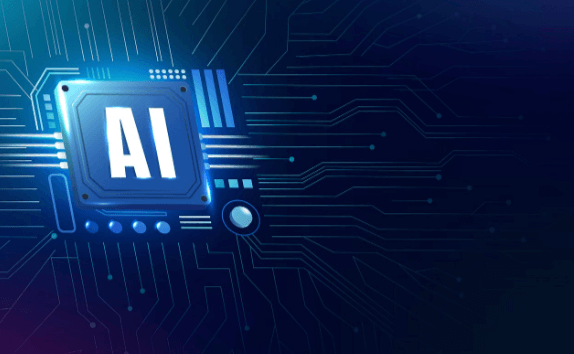Generative Deep Learning Models: Understanding GANs, VAEs, and More

Generative deep learning models have revolutionised various fields by enabling machines to create data that resembles human-generated content. These models, including Generative Adversarial Networks (GANs) and Variational Autoencoders (VAEs), have profound implications in image synthesis, text generation, and music composition. Enrolling in an AI course in Bangalore can provide valuable theoretical and practical knowledge for those interested in exploring these advanced AI techniques. This article gives insights into the fundamentals of generative deep learning models, focusing on GANs, VAEs, and other prominent architectures.
Generative Adversarial Networks (GANs)
GANs are among the most popular generative models for their potential to create highly realistic images, videos, and other data types. Introduced by Ian Goodfellow in 2014, GANs comprise two neural networks: a discriminator & a generator. The generator helps create fake data while the discriminator evaluates its authenticity. This adversarial process continues until the generator develops indistinguishable data from accurate data. Understanding the intricacies of GANs requires a solid foundation in neural networks and optimisation techniques. An AI course in Bangalore typically covers these topics in depth, providing students with hands-on experience in building and training GANs.
Variational Autoencoders (VAEs)
VAEs are another powerful class of generative models designed to encode data into a latent space and then decode it back to its original form. Unlike traditional autoencoders, VAEs impose a probabilistic framework, allowing them to generate new data samples. This capability makes VAEs particularly useful for applications like image synthesis and anomaly detection. An AI course in Bangalore often includes modules on VAEs, teaching students the mathematical foundations of variational inference and how to implement VAEs using deep learning frameworks.
Recurrent Neural Networks (RNNs) and LSTM Networks
While GANs and VAEs help create images and structured data, RNNs and Long Short-Term Memory (LSTM) networks excel at sequential data generation, such as text and time-series data. These models can capture temporal dependencies and generate coherent sequences. RNNs and LSTMs are fundamental in language modelling, text generation, and music composition applications. A generative AI course usually covers these sequential models, providing students with the skills to build and train RNNs and LSTMs for generative tasks.
Transformer Models
Transformers have become a significant architecture for generative tasks, particularly in natural language processing (NLP). Models like GPT-3, based on the transformer architecture, have demonstrated remarkable capabilities in generating human-like text. Transformers use self-attention mechanisms to process input data in parallel, making them more efficient than RNNs for long sequences. A generative AI course typically includes comprehensive training on transformers, teaching students how to leverage these models for various generative tasks in NLP and beyond.
Applications of Generative Models
Generative models have many applications, from creative industries to scientific research. In the creative domain, they generate art, music, and literature. In healthcare, generative models assist in creating synthetic medical data for research and training purposes. In cybersecurity, they generate realistic attack scenarios for testing defences. This aligns with foundational concepts covered in the ISACA Cybersecurity Fundamentals certification, which provides a solid understanding of information security principles. Understanding these applications requires a multidisciplinary approach, which is often a focus in a generative AI course. Such courses give students practical insights into how generative models are applicable across different industries.
Challenges and Limitations
Despite their impressive capabilities, generative models face several challenges. Training GANs, for instance, can be unstable and prone to issues like mode collapse, where the generator produces a limited variety of outputs. VAEs, on the other hand, often produce blurrier images compared to GANs. Addressing these challenges requires advanced knowledge of model architecture and optimisation strategies. An AI course in Bangalore typically includes discussions on these challenges, equipping students with strategies to overcome them and improve model performance.
Read also Things to know regarding application security
Ethical Considerations
Using generative models also raises ethical concerns, such as the potential for developing deep fakes or generating misleading information. AI practitioners must understand the moral implications of their work and implement safeguards to prevent misuse. Courses on AI, including an AI course in Bangalore, often emphasise ethical AI practices, teaching students how to develop and deploy generative models responsibly.
Future Directions
The field of generative deep learning is rapidly evolving, with new models and techniques continually being developed. Research is focusing on improving model efficiency, stability, and interpretability. For instance, advancements in GANs are leading to more stable training processes and higher-quality outputs. Staying tuned with these developments is essential for anyone involved in AI research or applications. A generative AI course exposes students to the latest trends and innovations in generative AI, preparing them for future challenges and opportunities in the field.
Conclusion
Generative deep learning models, including GANs, VAEs, RNNs, and transformers, have transformed the AI landscape, enabling realistic and high-quality synthetic data creation. Understanding these models requires a strong foundation in deep learning, which can be gained through an AI course in Bangalore. Such courses offer comprehensive training, covering generative models’ theoretical underpinnings and practical applications. By mastering these techniques, AI professionals can contribute to developing innovative solutions across various domains, harnessing the full potential of generative deep learning.
For More details visit us:
Name: ExcelR – Data Science, Generative AI, Artificial Intelligence Course in Bangalore
Address: Unit No. T-2 4th Floor, Raja Ikon Sy, No.89/1 Munnekolala, Village, Marathahalli – Sarjapur Outer Ring Rd, above Yes Bank, Marathahalli, Bengaluru, Karnataka 560037
Phone: 087929 28623
Email: enquiry@excelr.com





